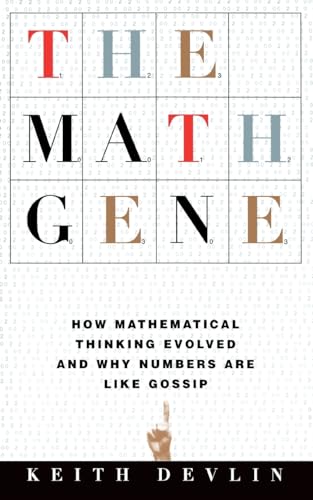Why is math so hard? And why, despite this difficulty, are some people so good at it? If there's some inborn capacity for mathematical thinking—which there must be, otherwise no one could do it —why can't we all do it well? Keith Devlin has answers to all these difficult questions, and in giving them shows us how mathematical ability evolved, why it's a part of language ability, and how we can make better use of this innate talent.He also offers a breathtakingly new theory of language development—that language evolved in two stages, and its main purpose was not communication—to show that the ability to think mathematically arose out of the same symbol-manipulating ability that was so crucial to the emergence of true language. Why, then, can't we do math as well as we can speak? The answer, says Devlin, is that we can and do—we just don't recognize when we're using mathematical reasoning.
Keith Devlin is the Dean of the School of Social Science at St. Mary's College, Moraga, California, and a Senior Researcher at the centre for the Study of Language and Information at Stanford University. He is the author of 22 books, one interactive CD-ROM, and over 65 technical research papers in mathematics. His voice is heard regularly on National Public Radio, on such programs as "Weekend Edition," "Talk of the Nation," "Science Friday," "Sounds Like Science," and "To the Best of Our Knowledge." His previous books include Life by the Numbers, the companion to a PBS series that aired in April and May, 1998 Goodbye Descartes: The End of Logic and The Language of Mathematics: Making the Invisible Visible.
